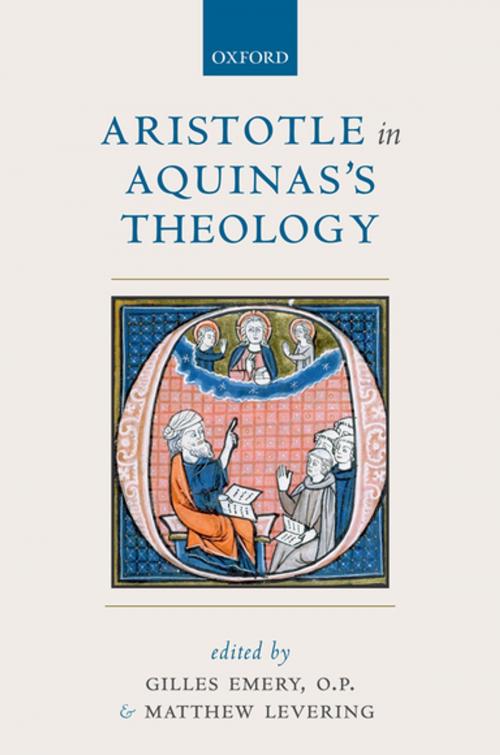| Author: | ISBN: | 9780191067501 | |
| Publisher: | OUP Oxford | Publication: | October 29, 2015 |
| Imprint: | OUP Oxford | Language: | English |
| Author: | |
| ISBN: | 9780191067501 |
| Publisher: | OUP Oxford |
| Publication: | October 29, 2015 |
| Imprint: | OUP Oxford |
| Language: | English |
Aristotle in Aquinas's Theology explores the role of Aristotelian concepts, principles, and themes in Thomas Aquinas's theology. Each chapter investigates the significance of Aquinas's theological reception of Aristotle in a central theological domain: the Trinity, the angels, soul and body, the Mosaic law, grace, charity, justice, contemplation and action, Christ, and the sacraments. In general, the essays focus on the Summa theologiae, but some range more widely in Aquinas's corpus. For some time, it has above all been the influence of Aristotle on Aquinas's philosophy that has been the centre of attention. Perhaps in reaction to philosophical neo-Thomism, or perhaps because this Aristotelian influence appears no longer necessary to demonstrate, the role of Aristotle in Aquinas's theology presently receives less theological attention than does Aquinas's use of other authorities (whether Scripture or particular Fathers), especially in domains outside of theological ethics. Indeed, in some theological circles the influence of Aristotle upon Aquinas's theology is no longer well understood. Readers will encounter here the great Aristotelian themes, such as act and potency, God as pure act, substance and accidents, power and generation, change and motion, fourfold causality, form and matter, hylomorphic anthropology, the structure of intellection, the relationship between knowledge and will, happiness and friendship, habits and virtues, contemplation and action, politics and justice, the best form of government, and private property and the common good. The ten essays in this book engage Aquinas's reception of Aristotle in his theology from a variety of points of view: historical, philosophical, and constructively theological.
Aristotle in Aquinas's Theology explores the role of Aristotelian concepts, principles, and themes in Thomas Aquinas's theology. Each chapter investigates the significance of Aquinas's theological reception of Aristotle in a central theological domain: the Trinity, the angels, soul and body, the Mosaic law, grace, charity, justice, contemplation and action, Christ, and the sacraments. In general, the essays focus on the Summa theologiae, but some range more widely in Aquinas's corpus. For some time, it has above all been the influence of Aristotle on Aquinas's philosophy that has been the centre of attention. Perhaps in reaction to philosophical neo-Thomism, or perhaps because this Aristotelian influence appears no longer necessary to demonstrate, the role of Aristotle in Aquinas's theology presently receives less theological attention than does Aquinas's use of other authorities (whether Scripture or particular Fathers), especially in domains outside of theological ethics. Indeed, in some theological circles the influence of Aristotle upon Aquinas's theology is no longer well understood. Readers will encounter here the great Aristotelian themes, such as act and potency, God as pure act, substance and accidents, power and generation, change and motion, fourfold causality, form and matter, hylomorphic anthropology, the structure of intellection, the relationship between knowledge and will, happiness and friendship, habits and virtues, contemplation and action, politics and justice, the best form of government, and private property and the common good. The ten essays in this book engage Aquinas's reception of Aristotle in his theology from a variety of points of view: historical, philosophical, and constructively theological.















